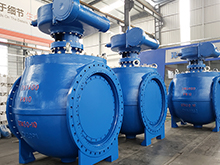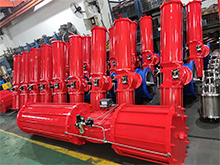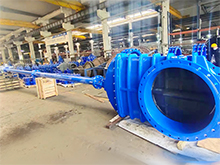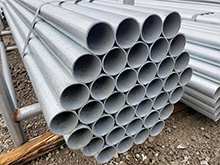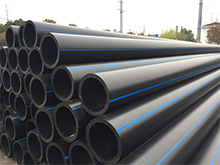- Gate valve
-
- DN1000 Extension stem double flange soft seal gate valveDIN F4 resilient seated gate valveDN450-1200 Resilient Seated Gate ValveDIN F5 resilient seated gate valveSocket connection soft seal gate valveUnderground cap soft seal gate valveBS5163 rising stem soft seal gate valveHard seal gate valveAPI slab Gate ValveStainless steel flange gate valveWafer knife gate valvePneumatic gate valveSoft seal gate valveExtension stem gate valveUL/FM fire protection groove ends gate valveRising stem forged steel gate valvecarbon steel gate valveStainless steel threaded gate valveDIN soft seal gate valveANSI soft sealing gate valve 200PSICast iron gate valveBS resilient seated gate valve
- Butterfly valve
-
- DN900 pneumatic triple eccentric hard seal butterfly valveD643H Triple Eccentric Butterfly ValveD343H Hard seal butterfly valveMulti standard EPDM seated butterfly valveSingle flange butterfly valveDN2000 Double eccentric butterfly valveFlange butterfly valveLug butterfly valveWafer butterfly valve with handleWorm gear operated butterfly valveWafer lined fluorine butterfly valveStainless steel wafer butterfly valveStainless steel flanged butterfly valveThree eccentric flange butterfly valvePneumatic flanged butterfly valvePneumatic wafer butterfly valveTriple eccentric butterfly valve wafer typeWafer butterfly valve ULC approvedInflatable seat butterfly valveHigh performance butterfly valveGrooved end butterfly valveElectric soft seal butterfly valveFlange fluorine lined butterfly valveHandle aluminum butterfly valveWorm Gear Aluminum Butterfly ValveFull PTFE lined butterfly valve wafer typeOne stem no-pin wafer butterfly valveMulti standard aluminum stem butterfly valveStainless Steel wafer Butterfly ValveAluminium handle operated lug butterfly valveLever Operated Flange Butterfly ValveButterfly valve stemButterfly valve discButterfly valve seat
- Ball valve
-
- DN1400 top-mounted eccentric semi-ball valveFlanged three-way ball valveFully welded ball valveNatural gas ball valveHigh platform flange ball valve1 PC ball valveFixed ball valvePTFE seat flanged ball valveMetal seat ball valveAPI 6D ball valve3 Piece ball valveFull Bore 3 way ball valve L-Port3 Way T-Port ball valve2PC Ball valve female thread stainless steel
- Globe Valve
-
- API Carbon Steel Globe ValveBellows Globe ValveStainless steel flange globe valveStainless steel thread S type globe valveStainless steel thread B type globe valveCast Steel Globe ValvePiston Globe ValveWCB Carbon Steel Globe Check Valveelectric motorized control stainless steel SS316 globe valveBrass Globe ValveCryogenic Globe valveHT200 Globe ValveThreaded Stainless Steel Globe ValveGG25 Globe ValveANSI API Cast Steel And Stainless Steel Globe valve
- Check valve
-
- Rubber seal check valveDN800 Slow closing check valveDN800 Rubber Disc Check ValveButterfly Buffering Check Valvecheck valve with counter weightSilent Check ValveWCB Swing check valveSwing Check ValveSingle Chip Check Valve H74WStainless Steel Wafer Check ValveSwing Start Check ValveFoot check valveAPI Swing Check ValveDIN Flange check valveSingle plate check valveLifting Check ValveBottom ValveHammer Diminish Noises Check ValveWafer Check ValveWafer dual plate check valve
- Water Meter
-
- Vertical Type Water MetersStainless steel threaded water meterPiston water meterPlastic water meterMore flow rotor dry water meterspiral vane flange water meterCI wotlman water meter with pulse outputLXCLG(R) Vertical removable element woltman cold (hot) water meterSingle flow rotor dry water meterPrepaid Token Water MeterElectromagnetic flowmeterRotary Piston Liquid Sealed Water MeterRotary Piston Liquid Sealed Water Meter
- Air valve
-
- Double ball exhaust valveDoubleair Air Valve SaudiDoubleair Air Valve Southeast AsiaDoubleair Air Valve South AmericaDouble Air ValveThreaded Air ValveSingle Air ValveTriple Functions Air ValveAutomatic Air Release ValveAutomatic release valveAutomatic exhaust valveComposite Exhaust Air ValveBrass exhaust valveDouble Ball Air Valve
- Pipe Repair & Coupling
-
- Flexible Multi-Function Pipe Coupling ZFJ-SSS Semi-Circle Pipe Repair Clamp SJW-HDuctile Iron Band Repair ClampStainless Steel Band Repair ClampDouble-Section Pipe Repair CouplingFolding Type Pipe RepairSingle-Section Multi-Function Pipe Coupling MF-SGear-Ring Type Multi-Function Pipe Coupling GR-SZBW Damping Corrugated Hose
- Dismantling Joint
-
- VSSJAFC(CC2F) Detachable Flange Transmission JointVSSJA-2(B2F) Double Flange Limited Expansion JointVSSJA-1(BF) Single Flange Limited Expansion JointVSSJA(AF) Flange Loose Expansion JointJGD-B Threaded Rubber JointZBW Damping Corrugated HoseKXT-S Flexible Dual-Spherical Rubber JointKXT Rubber Soft JointFlange Adaptor
What is a needle valve used for?
Needle valves have two main functions in fluid lines:
1.Cut off the fluid
2.Adjust flow
Integral forged needle valves are indispensable steam and fluid control equipment in thermal power, petrochemical, aviation, offshore oil production and other industries. Especially high-temperature and high-pressure valves with temperatures ≥450°C and pressures ≥26MPa are in key parts of the process system.
The needle valve has the advantages of easy installation and disassembly, tight connection, good fire protection, explosion-proof and pressure resistance, and good sealing performance. It is an advanced connection valve in power stations, oil refining, chemical equipment and instrument measurement pipelines.
Advantages of needle valves include:
High adjustment accuracy:
Due to the small contact area between the valve core and the valve seat, more precise flow adjustment can be achieved.
Small traffic loss:
The valve core design of the needle valve makes the resistance of the medium pass through the valve smaller and reduces the flow loss.
High reliability:
The needle valve has a simple structure and no leakage points, so it has high reliability.
Wide range of application:
Needle valves are suitable for various media, including gas, liquid and corrosive media.
Process characteristics of needle valve:
1. The internal thread of the packing bolt is extruded, which has high strength, high precision and improved cycle life.
2. Double set screw locking handle, stable and reliable.
3. The stop pin prevents the valve cap from loosening during use and causing leakage.
4. The valve stem thread is cold-rolled and has high strength. The thread position is above the packing and is protected from the influence of the medium.
5. The valve head is overlayed with Stellite alloy, which has good wear resistance and long service life.
6. The ceramic valve core has higher hardness.
7. In the fully open position, the rear valve seat acts as a back seal.
Needle valve selection principles
Low-temperature needle valve: suitable for piping systems and devices with low-temperature media.
Lifting rod needle valve: suitable for piping systems of oil refining units and catalytic cracking units.
All stainless steel needle valve: suitable for devices and piping systems with corrosive media such as acid and alkali in chemical systems.
Metal-to-metal sealing needle valve: suitable for high-temperature media in metallurgical systems, power systems, petrochemical plants, and urban heating systems.
Adjusting needle valve: suitable for occasions where flow adjustment is required.
Full-bore welded needle valve: For oil and natural gas pipelines that need to be cleaned and buried underground, needle valves with full-bore welded structures should be used.
Flange-connected needle valve: suitable for transportation pipelines and storage equipment of refined oil, and oxygen pipeline systems in metallurgical systems.
Needle valve with flange connection and internal thread connection: on city gas and natural gas pipelines.
Needle valves cannot be used in the following situations:
1. Not suitable for fluids with particles and solidification (such as cinder, syrup, etc.).
2. Pay attention to the cleanliness of the pipeline. It is recommended to install a filter upstream of the pipeline to reduce valve wear.
3. Working pressure up to 6000psi
Commonly used materials for needle valves:
Brass
Brass needle valves are suitable for use in hydraulic systems, drinking water, high temperature applications and gas pipelines. They are ideally suited for neutral and non-corrosive media, most commonly drinking water applications. However, they should not be used with salt water (seawater), distilled water, acids or chlorides.
Stainless steel
Stainless steel needle valves offer excellent overall chemical resistance to virtually any media. The material is very durable and can withstand high temperatures and pressure. It is suitable for aggressive and corrosive media such as seawater, unless the stainless steel will be continuously exposed to salt water as it will corrode.
Plastic
Plastic needle valves are used for fine regulation of pure and corrosive fluids. However, plastics cannot withstand high temperatures or pressures and are typically used in applications below 60 degrees Celsius.
Follow more WESDOM information: https://www.facebook.com/hawsd
To obtain product prices please contact Ann via WhatsApp: 0086 138 4918 4495


